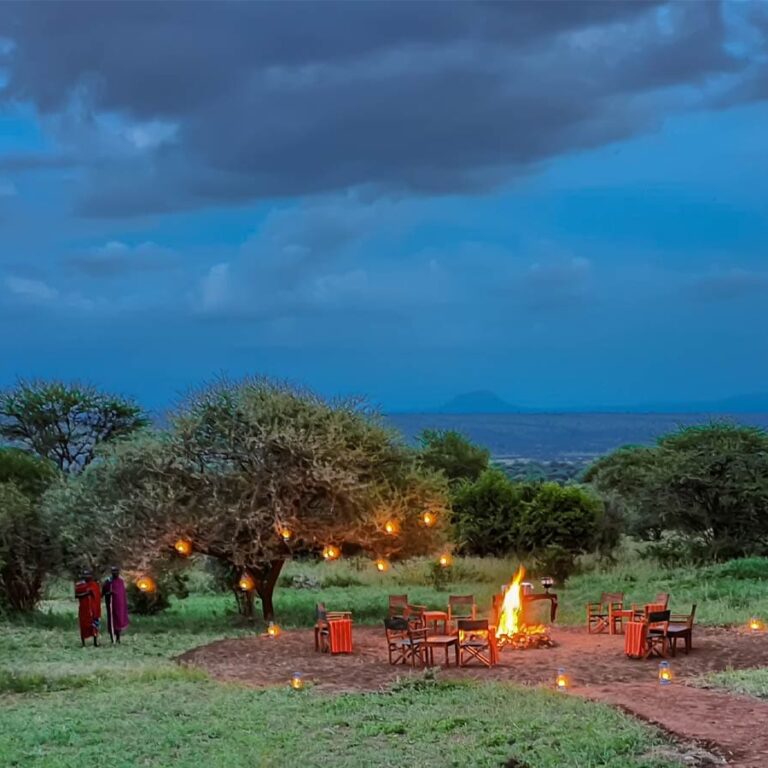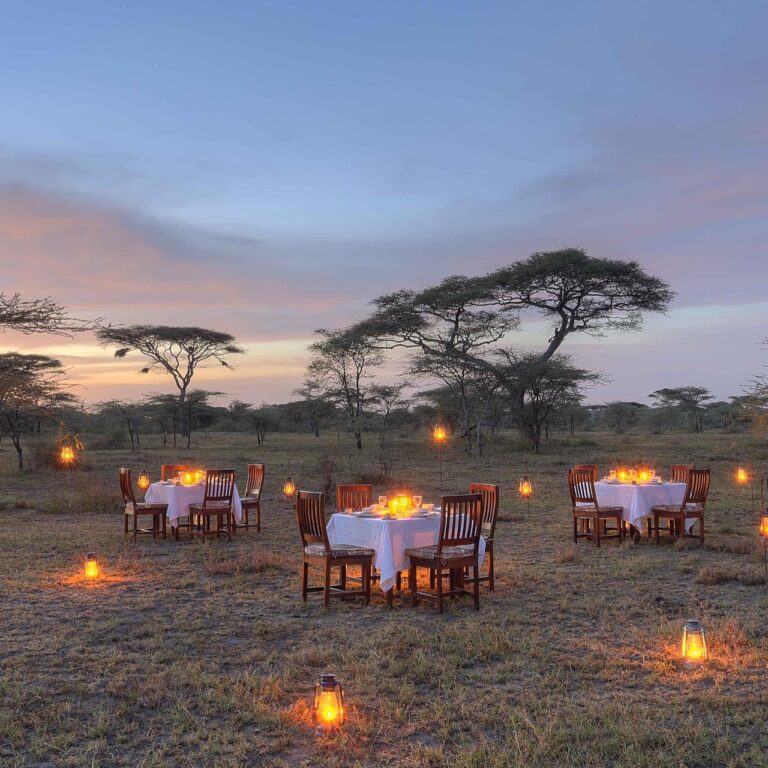Where to See Elephants in Africa – the Top 10 Best Safari Destinations to See Elephants.
Africa, with its vast and diverse landscapes, is home to some of the most incredible wildlife on the planet. Among the iconic creatures that roam its plains and forests, the majestic elephant holds a special place. If you’re an enthusiast eager to witness these gentle giants in their natural habitat. We’ve compiled a list of the 10 best places to see elephants in Africa. Before embarking on this unforgettable journey. Let’s delve into some interesting facts and address frequently asked questions about these remarkable creatures.
Selous Game Reserve, Tanzania, As one of the largest game reserves in Africa. Selous is home to diverse ecosystems and a healthy population of elephants.
Ruaha National Park, Tanzania: This lesser-known gem boasts a diverse range of wildlife. Its expansive landscapes offer a more secluded elephant-watching experience.
Africa, the continent of diverse landscapes and awe-inspiring wildlife. Home to one of its most iconic and beloved creatures—the elephant. These gentle giants, with their impressive size and intelligence, captivate the hearts of nature enthusiasts and conservationists alike. If you’re eager to witness the majesty of African elephants in their natural habitat. Here’s a guide to the 10 best places to see them. Along with fascinating facts and answers to frequently asked questions.
Amboseli National Park, Kenya
Nestled at the foot of Mount Kilimanjaro, Amboseli National Park offers a stunning backdrop for elephant sightings. The park is known for its vast herds of elephants roaming freely across the plains. Creating an unforgettable experience for visitors.
Chobe National Park, Botswana
Renowned for having one of the highest elephant concentrations in Africa. Chobe National Park is a must-visit destination for elephant enthusiasts. The Chobe River attracts large herds, providing excellent opportunities for boat safaris and close encounters with these majestic creatures.
Kruger National Park, South Africa
As one of Africa’s most famous game reserves. Kruger National Park is home to a diverse range of wildlife, including a significant elephant population. The park’s top 7 Destinations to see Elephants in Africa varied ecosystems, offer an immersive experience, allowing visitors to witness elephants in different habitats.
Mana Pools National Park, Zimbabwe
Mana Pools, a UNESCO World Heritage Site, is known for its pristine wilderness and the unique opportunity for walking safaris. Observing elephants on foot adds an extra layer of thrill and intimacy to the encounter. Making Mana Pools a standout destination.
Tarangire National Park, Tanzania
Tarangire is famous for its ancient baobab trees and a high concentration of elephants during the dry season. The Tarangire River acts as a magnet. Drawing elephants from miles around, providing visitors with exceptional opportunities for photography and observation.
Queen Elizabeth National Park, Uganda
While famed for its diverse ecosystems and tree-climbing lions, Queen Elizabeth National Park in Uganda is also home to elephants. The park’s Ishasha sector is particularly known for its unique tree-climbing elephants, adding a fascinating twist to the usual sightings.
Hwange National Park, Zimbabwe
Hwange, Zimbabwe’s largest national park, boasts a thriving elephant population. The park’s extensive network of waterholes. Ensures that visitors have excellent chances of witnessing these magnificent creatures up close, especially during the dry season.
Addo Elephant National Park, South Africa
True to its name, Addo Elephant National Park is dedicated to the conservation of elephants. The Elephant destinations in Africa park’s success in protecting these creatures has led to a significant population increase. Making it an ideal destination for those wanting an elephant-focused experience.
Luangwa Valley, Zambia
South Luangwa National Park, located in the heart of the Luangwa Valley. Is home to a variety of wildlife, including elephants. The park’s walking safaris and night drives provide a unique perspective on these majestic creatures. Showcasing their behavior in different settings.
Lope National Park, Gabon
While not as commonly associated with elephants. Lope National Park in Gabon offers a unique experience for those seeking a less crowded setting. The park’s mix of savannah and rainforest provides a distinctive backdrop for observing elephants in a more secluded environment.
Interesting Facts about African Elephants:
Social Structure: African elephants live in tight-knit family groups led by a matriarch. These family units exhibit strong social bonds, displaying empathy and complex communication within the group.
Intelligence: Renowned for their intelligence, elephants have a large and highly developed brain. They demonstrate problem-solving abilities, self-awareness, and even a form of mourning for deceased family members.
Communication: Elephants communicate using a variety of vocalizations, infrasound, and body language. Their low-frequency rumbles can travel over long distances, facilitating communication between different herds.
Feeding Habits: Elephants are herbivores with a diverse diet that includes grasses, leaves, bark, and fruits. They can consume hundreds of pounds of vegetation each day, playing a crucial role in shaping their ecosystems.
Conservation Challenges: Despite their incredible resilience, African elephants face significant threats, including habitat loss, human-wildlife conflict, and poaching for ivory. Conservation efforts are essential to ensure the survival of these magnificent creatures.
African Elephants FAQs:
Embarking on a journey to witness elephants in their natural habitat is a once-in-a-lifetime experience. Africa’s diverse landscapes offer a multitude of options for elephant enthusiasts, each providing a unique perspective on the lives of these incredible creatures. Remember to approach this adventure with a sense of responsibility, ensuring the conservation of these gentle giants for generations to come.
Are African Elephants Endangered? African elephants are classified as vulnerable, with their populations facing threats from habitat loss and poaching. Conservation initiatives and anti-poaching efforts are crucial to ensuring their long-term survival.
How Fast Can Elephants Move? Despite their size, elephants can run at speeds of up to 25 miles per hour. However, they are more known for their endurance rather than speed, and running is usually a last resort.
Do Elephants Have Good Memory? The saying that elephants never forget has some truth to it. Elephants have an impressive memory, enabling them to remember complex routes, water sources, and even other individuals.
Why Do Elephants Dust Themselves? Elephants often throw dust or mud over their bodies as a way to protect themselves from insects and the sun. The dust acts as a natural sunscreen and helps in repelling parasites.
How Can I Contribute to Elephant Conservation? Supporting reputable conservation organizations, participating in eco-friendly safaris, and raising awareness about the challenges facing elephants are effective ways to contribute to their conservation.
Conclusion: Best Places to See Elephants in Africa
African elephants are not merely charismatic megafauna; they play a vital role in shaping the ecosystems they inhabit. Witnessing these majestic creatures in the wild is an experience that leaves a lasting impression. As you embark on a journey to the best places to see elephants in Africa, remember the importance of responsible tourism and conservation efforts to ensure a sustainable future for these incredible beings.








